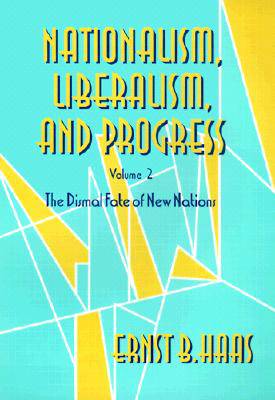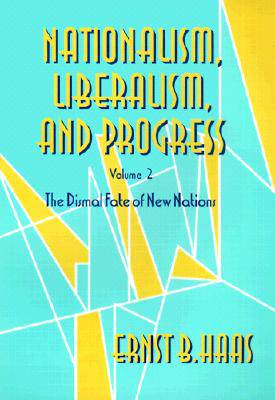
- Afhalen na 1 uur in een winkel met voorraad
- Gratis thuislevering in België vanaf € 30
- Ruim aanbod met 7 miljoen producten
- Afhalen na 1 uur in een winkel met voorraad
- Gratis thuislevering in België vanaf € 30
- Ruim aanbod met 7 miljoen producten
Omschrijving
Far from being an inevitably aggressive and destructive force, nationalism is, for Ernst B. Haas, the primary means of bringing coherence to modernizing societies. In the second volume of his magisterial exploration of this topic, Haas emphasizes the benefits of liberal nationalism, which he deems more progressive than other nation-building formulas because it relies on reason to improve citizens' lives.
The Dismal Fate of New Nations considers several societies that modernized relatively recently, many of them aroused to nationalism by the imperialism of the "old" nation-states. The book probes the different patterns of development in emerging countries--Iran, Egypt, India, Brazil, Mexico, China, Russia, and Ukraine--for insights into the possibilities and limitations of all nationalisms, especially liberal nationalism.
Employing a systematic comparative perspective, Haas organizes the book around the notion of change and its management by political elites in Asia, Eastern Europe, Latin America, and the Middle East. Haas particularly wants to understand how nationalism plays out in the politics of modernization within non-Western cultures, especially those where religions other than Christianity predominate. Where the hold of religion remains formidable, he argues, the mixture of traditional and secular-modernist institutions and beliefs will challenge the victory of liberal nationalism and the very success of nation-state formation.
Specificaties
Betrokkenen
- Auteur(s):
- Uitgeverij:
Inhoud
- Aantal bladzijden:
- 496
- Taal:
- Engels
- Reeks:
- Reeksnummer:
- nr. 2
Eigenschappen
- Productcode (EAN):
- 9780801431098
- Verschijningsdatum:
- 31/10/2000
- Uitvoering:
- Hardcover
- Formaat:
- Genaaid
- Afmetingen:
- 156 mm x 234 mm
- Gewicht:
- 830 g

Alleen bij Standaard Boekhandel
Beoordelingen
We publiceren alleen reviews die voldoen aan de voorwaarden voor reviews. Bekijk onze voorwaarden voor reviews.











